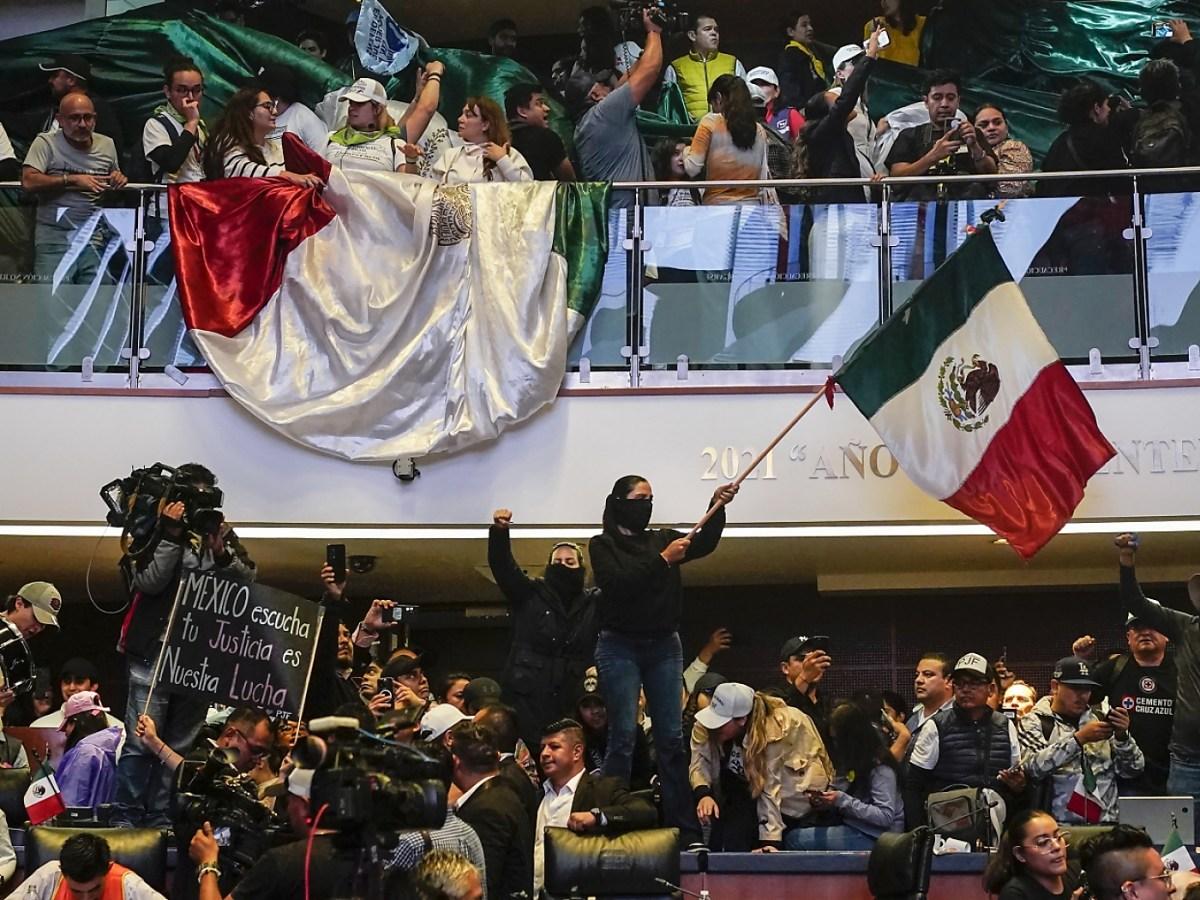In a dramatic turn of events, the Mexican Senate has approved a controversial judicial reform proposed by outgoing President Andrés Manuel López Obrador, with 86 votes in favor and 41 against. This approval came after a marathon session lasting up to 20 hours, which was interrupted by protests and required a change of venue.The reform, set to take effect in 2025, will allow for the popular election of judges, magistrates, and ministers, making Mexico the first country in the world to elect all its judges through popular vote. It also reduces the number of Supreme Court justices from 11 to 9 and creates a new disciplinary tribunal to evaluate and investigate judges’ performance.President-elect Claudia Sheinbaum celebrated the approval, stating that ‘the administration of justice in our country will be strengthened’. However, the reform has faced fierce opposition from various quarters, including judges, opposition parties, and international observers.Critics argue that the reform could undermine judicial independence and make judges vulnerable to political pressure and organized crime influence. The U.S. Ambassador to Mexico, Ken Salazar, has called the reform a ‘risk’ to democracy and an economic threat to the country.The approval process was marked by tension and controversy. Protesters, including judicial employees and law students, stormed the Senate building, leading to accusations of police using tear gas. Senator Lucía Trasviña from the ruling Morena party accused opponents of being ‘traitors to the country,’ escalating the political rhetoric surrounding the reform.The reform still needs to be ratified by at least 17 of Mexico’s 32 state legislatures before it can be promulgated. Its passage has already had economic repercussions, with the Mexican peso reportedly weakening by 17% since the ruling party’s landslide victory in June.As Mexico moves forward with this unprecedented change to its judicial system, the coming months will be crucial in determining its implementation and impact on the country’s democratic institutions and economic stability.
Key points
- Mexican Senate approves judicial reform allowing popular election of judges, with 86 votes in favor and 41 against.
- The reform reduces Supreme Court justices from 11 to 9 and creates a new disciplinary tribunal.
- Critics, including international observers, warn of potential threats to judicial independence and democracy.
- The reform still needs ratification by at least 17 of Mexico’s 32 state legislatures.
Contradictions👾While supporters claim the reform will strengthen the administration of justice, critics argue it could undermine judicial independence and make judges vulnerable to political pressure.
👾The government presents the reform as a measure to combat corruption, but opponents see it as a potential threat to democratic checks and balances.



